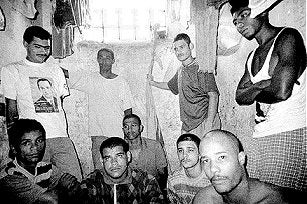|
HUMAN RIGHTS WATCH PRISON PROJECT
U.N. PRISON MONITORING EFFORT The vast scale and chronic nature of the human rights violations in the world's prisons have long been of concern to the United Nations, as demonstrated by the 1955 promulgation of the U.N. Standard Minimum Rules for the Treatment of Prisoners. Indeed, the international community's failure to adopt these standards in practice, even while it has embraced them in theory, has inspired the United Nations' most recent prisons effort. For the past several years, a U.N. working group has been hammering out a draft treaty that would establish a U.N. subcommittee authorized to make periodic and ad hoc visits to places of detention in states party to the treaty, including prisons, jails, and police lockups. As described in the draft treaty -- conceived as an optional protocol to the Convention Against Torture -- the basic goal of the subcommittee would be to prevent torture and other ill-treatment. Accordingly, based on the information obtained during its periodic and ad hoc visits, the subcommittee would make detailed recommendations to state authorities regarding necessary improvements to their detention facilities, and the authorities would be expected to implement these recommendations. Although the proposed monitoring mechanism has great promise, it also has serious potential flaws. Notable
The working group met for its sixth session in October 1997, reaching negotiated agreement as to the content of several draft provisions. Although most countries active in the deliberations -- including Chile, South Africa, Uruguay, the Netherlands, Denmark, Sweden, and Australia -- clearly favored establishing a strong and workable mechanism, a few recalcitrant states succeeded in hindering the working group's progress toward this goal. Because the proceedings are conducted on a consensus basis, rather than by simple majority vote, a small minority of countries is able to have an exaggerated impact on the draft text. As of this writing, the working group has not yet taken a definitive position on public reporting and other fundamental issues, but there is fear that given this consensus approach the lowest common denominator could prevail. [Back to the Human Rights Watch Prison Conditions Page] |
